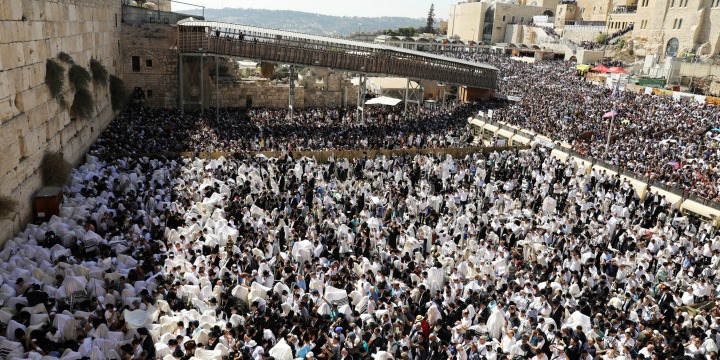The triumph of Alexandria Ocasio-Cortez, age 29, in the Democratic Party’s primary in New York’s 14th Congressional District this June — and her all-but-certain election to the House of Representatives on November 6 — is just one indication of a profound change fomenting in the United States, and indeed the entire world. It is the changing of the guard.
The world has grown tired of veteran leadership, and politics increasingly belong to millennials. Austria’s chancellor was elected at 31. New Zealand’s prime minister is 38. There are more than 19 representatives under the age of 35 in Germany’s Bundestag. And, of course, there is the Bronx-based Ocasio-Cortez, a progressive Democrat modeled in the vein of Bernie Sanders. Her win provided a strong tail-wind for other young Democratic candidates, such as 27-year-old Julia Salazar from New York’s 18th District and Abby Finkenauer, the 29-year-old legislator who won the Democratic nomination in Iowa’s First Congressional District.
Much has been discussed about the alleged growing divide between the State of Israel and American Jewry in terms of politics and religion. Yet too few leaders have seriously grappled with how woefully unprepared Israel is for the coming generational shift.
In just one example, a survey by the American Jewish Committee showed that only 40–45 percent of Jewish-American millennials expressed support for Israel’s stance on geo-political issues, in contrast to more than 60 percent of the entire Jewish-American population. American millennials are strong-minded, smart, individualistic, consume their news online and via social media, and tend to support the underdog. And mainly, at every opportunity, they ask, “What’s in it for me?” Regarding Israel, they tend to assume that the answer is “not much.”
Likewise, the American Jewish establishment is increasingly out of touch with Israeli millennials. Typical young Israelis work at big companies, earn an average wage, live in a commuter town, and politically lean right. What do they care about American Jewry? Why should it matter to them? Do American Jews help bring down the cost of living?
The problem is the same on both sides of the ocean because the people in charge of the relationship, at every level — and especially in Israel — are not millennials but their parents and grandparents, from Israel’s ministers and Knesset members to its social leaders and diplomats. Most are good and decent people who have done much to build a lasting bilateral bond. But they simply cannot grasp how a 29-year-old Democratic, liberal, intellectual New Yorker — or, for that matter, how a 29-year-old Likudnik, IT professional from Petach Tikvah — sees the world.
The solution to this growing disconnect will not come from the political leadership, but from civil society.
First and foremost, the best hope to create bilateral millennial ties is through the media.
Today, at the many conferences and panels focusing on the Israel-American relationship, the wrong people sit on the stage. Who are they? Mostly men of the establishment, who average the age of 55. That must change. In response to the now-infamous photo-op of German Chancellor Angela Merkel with an all-male group of Israeli high-tech entrepreneurs invited to meet her, hundreds of female tech innovators in Israel and beyond replicated the photo with their female teams. Israel needs more of those intrepid young women at meetings with world leaders, not on social media ridiculing their government’s terrible optics.
Second, Israel should redirect the conversation. Reality cannot be whitewashed; there’s no point in publishing supposedly cool video clips of things Israel doesn’t do very well, such as promote marriage equality. There are enough things it excels at naturally. That is the difference between propaganda and genuine and credible content. Millennials can easily tell the difference.
Instead, Israelis need to connect with Jewish-American young people through shared values, such as Tikkun Olam, gender equality, technology, productivity, and creativity. These are concepts that truly link the young Jewish American to the State of Israel — much more than any “establishment” attempt to persuade American Jewry that Bernie Sanders and the Democratic party are going down a dangerous, antisemitic path.
Finally, Israelis must rethink their target audience. The way to achieve understanding and rapprochement between the two communities is through the next generation — that is to say, the present one. Israel must focus on American millennials, who in the years to come will lead their respective governments and chair the relevant funds and companies. They need to know, and now, that all in all, the existence of Israel is a good thing for the values they hold and for themselves personally. This must be made clear to them even without the tales of existential threats of which their grandparents used to speak.
Yaniv Cohen is the CEO of the Abba Eban Institute for International Diplomacy at the Interdisciplinary Center (IDC) Herzliya. He has 10 years’ experience in international corporate law, operations, strategy, and development, and served for nine years in Israel’s various security arms. He was previously head of development at the America-Israel Friendship League (AIFL).





















